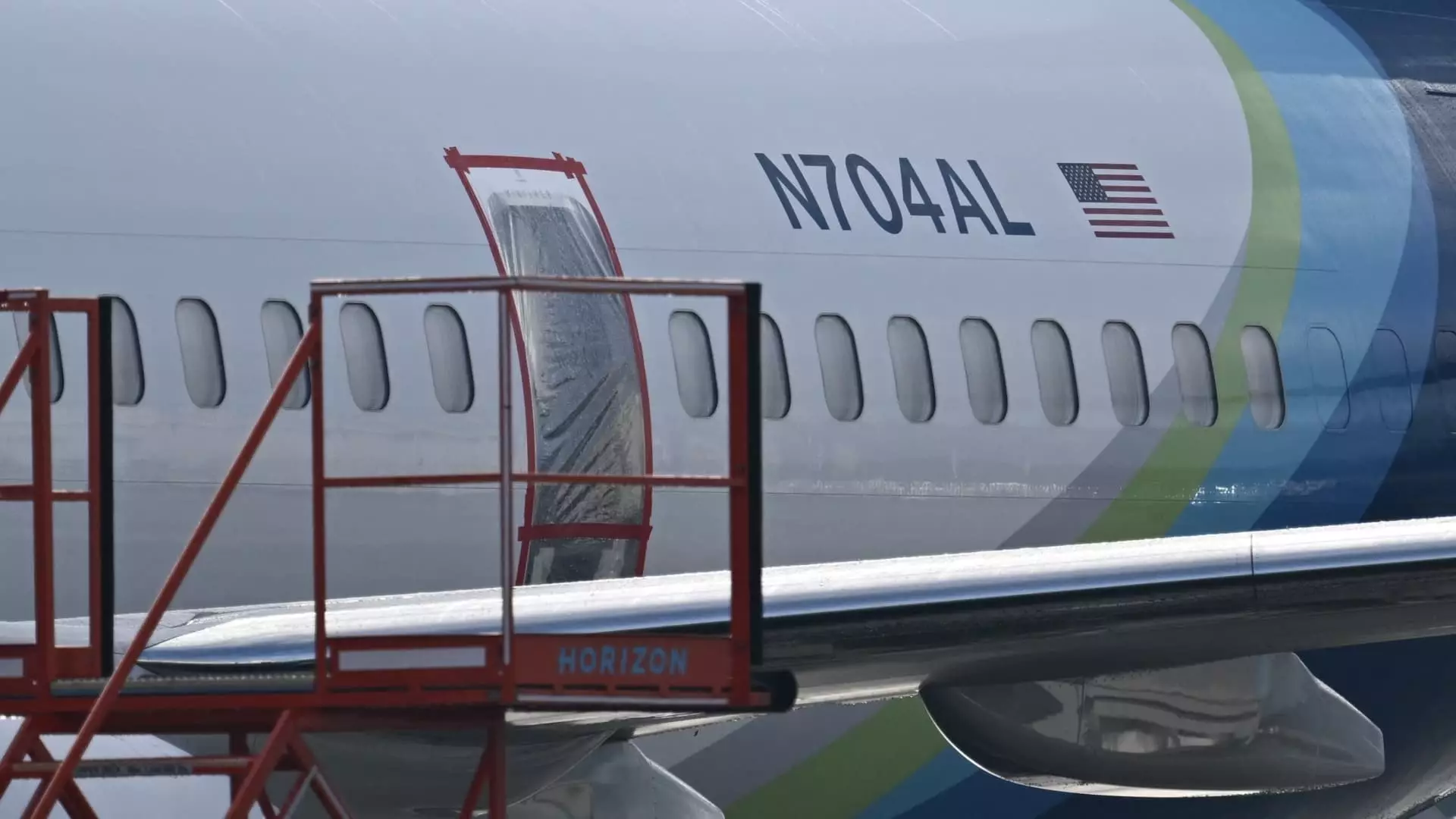The aviation industry is once again under intense scrutiny as Boeing CEO Dave Calhoun met with U.S. senators on Capitol Hill to address concerns surrounding a blown door plug incident on one of the company’s 737 Max 9 planes. The meetings were organized at Calhoun’s request, as the company strives for transparency and accountability in the face of ongoing investigations and safety concerns.
The Federal Aviation Administration (FAA) grounded Boeing’s 737 Max 9 planes after a door plug blew out during an Alaska Airlines flight, exposing passengers to a violent force that resulted in the loss of headrests and seatbacks. This incident has prompted the FAA to review data from early inspections in order to ensure the safety of future flights. FAA Administrator Mike Whitaker expressed uncertainty regarding the timeline for this process, but reiterated the agency’s commitment to resolving the issue promptly.
Senator Dan Sullivan, a Republican from Alaska, emphasized the importance of proactive measures in airline safety. Following his meeting with Calhoun, Sullivan noted that the Senate is examining ways to address aviation safety, with a particular focus on incorporating these measures into the FAA reauthorization bill. The goal is to ensure that safety protocols are in place to prevent such incidents from occurring in the future.
Recent reports have raised questions about the roles and responsibilities of Boeing’s mechanics in relation to the blown door plug incident. The Seattle Times revealed that the fuselage panel involved in the incident was manufactured by Spirit AeroSystems and improperly reinstalled by Boeing’s mechanics. However, both Calhoun and Boeing declined to comment on this specific report, citing an ongoing federal investigation. Boeing reiterated that the National Transportation Safety Board (NTSB) is the official authority to release information about the investigation.
As investigations continue, the NTSB has yet to provide a comment on the situation. Meanwhile, Spirit AeroSystems shares experienced a boost, increasing by 6% following the report regarding the mishandled installation of the fuselage panel. Contrarily, Boeing’s stock has been affected negatively, dropping more than 10% since the incident on January 5th.
The aviation industry is facing increased scrutiny as Boeing’s leadership engages in crucial discussions with U.S. senators. The blown door plug incident has raised significant concerns about safety measures and the actions of Boeing’s mechanics. As investigations proceed, it is essential for regulatory agencies, such as the FAA and NTSB, to work together to ensure the safety of passengers and the integrity of the aviation industry. Collaboration and proactive measures should be prioritized to prevent similar incidents from occurring in the future, as the industry strives for increased transparency and accountability.


Leave a Reply